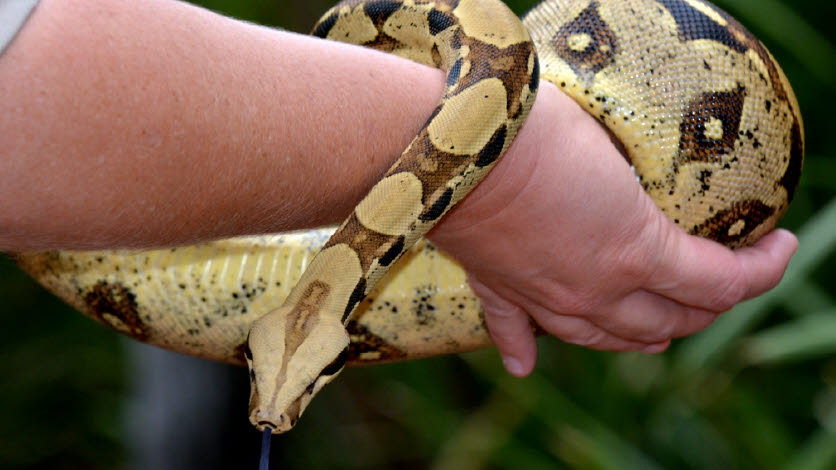Keeping pet reptiles

Some reptiles make for perfect pets. The reptilian repertoire means there is a wide range of reptile species to choose from. Making an informed decision in selecting the right pet reptile is important to ensure welfare and wellbeing to both you and your prospective new pet.
Know the laws
All native reptiles in Australia are protected by law. It is important to understand that it is illegal to take reptiles from the wild or to release an unwanted reptile back into the wild. You may keep some native reptiles as pets, but you must have a licence or permit to do so. If you want to purchase a native reptile as a pet, you must procure one from a licenced supplier. The purpose of licencing is to protect our unique and delicate Australian ecosystem. Each state has its own licencing laws in Australia regarding native reptile ownership.
Find further information on reptile ownership licencing by state: NSW, QLD, ACT, VIC, WA, SA, NT, TAS
Some things to consider
- Licences: To keep native reptiles in most states you must obtain an appropriate licence prior to purchase of a pet reptile.
- Consider a starter reptile: Popular starter reptiles are skinks, dragons, turtles and pythons.
- They are different from dogs and cats: Reptiles require completely different things from you compared to other pets.
- Long-term commitment: Reptiles may be small but they have much longer lifespans than cats and dogs. They could well outlive you!
- Licenced supplier: It is imperative to source your pet reptile from a lawfully licenced supplier.
Housing and feeding your pet reptile
It is absolutely vital you provide your reptile with the correct housing set up to prevent a myriad of health problems. Here are a few things you need to think about:
- Housing: Reptiles should be housed in a species-specific vivarium of an appropriate size. They need to be able to perform normal natural behaviours and activities. It is not safe to use an empty aquarium from the fish you once owned.
- Temperature: Reptiles require a heat source for many reasons. A thermogradient is essential to allow your reptile to control its body temperature. Use a thermostat to provide your reptile with appropriate and consistent temperature year-round.
- Lighting: Careful provision of light is essential for reptile health and well-being in captivity. Think of them as solar-powered! You should research what source of light is required for your specific species of reptile.
- Diet: Different reptiles require very different diets. Be sure to research the species-specific diets before deciding on a species of pet reptile you want as a pet. Lizards require a diverse more regular weekly feeding regime, while pythons require a simple provision of whole rodents just once every four weeks! (Feeding may depend on the time of year and temperature.)
- Health: It can be helpful to take your reptile to an exotics veterinarian who can provide your reptile with the best medical care. Be aware that reptiles carry Salmonella which can make humans extremely unwell. Always wash your hands before and after dealing with your pet reptile, its environment, food or droppings. Do not kiss your reptile. Do not let them roam the house.
When sourcing a new pet, it is important to talk to a vet first. With reptiles, there is, even more, to think about than your average dog or cat, and it is vital to understand their unique biological differences. Their respective needs and requirements for a healthy, happy life in captivity is a big responsibility and should be taken seriously to ensure your expectations as an owner are sound.
